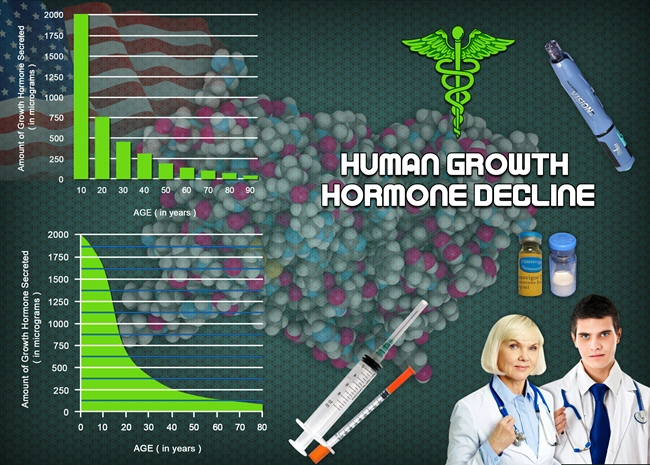
Introduction to Andropause
Andropause, often referred to as male menopause, is a term used to describe the gradual decline in testosterone levels in aging men. Unlike the more abrupt hormonal changes experienced by women during menopause, andropause is a subtle process that can begin as early as the late 30s and continue into old age. This condition affects a significant number of American men, leading to a variety of physical and psychological symptoms that can impact their confidence and overall quality of life.
Symptoms and Diagnosis
The symptoms of andropause can be diverse and often mistaken for other conditions. Common signs include decreased libido, erectile dysfunction, fatigue, loss of muscle mass, increased body fat, and mood swings. These symptoms can lead to a decline in self-esteem and confidence, as men may feel less capable both physically and emotionally.
Diagnosing andropause involves a thorough medical evaluation, including a detailed medical history and physical examination. Blood tests to measure testosterone levels are crucial, as they help differentiate andropause from other potential causes of symptoms, such as thyroid disorders or depression. It is essential for men experiencing these symptoms to consult with a healthcare provider to obtain an accurate diagnosis and appropriate treatment.
Impact on Confidence
The psychological impact of andropause on American men cannot be overstated. Confidence is often closely tied to physical prowess and sexual performance, both of which can be affected by declining testosterone levels. Men may feel less assertive and more withdrawn, impacting their personal and professional lives. The societal pressure to maintain a youthful and vigorous appearance can exacerbate these feelings, leading to a negative feedback loop of decreased confidence and increased stress.
Treatment Options
Fortunately, there are several treatment options available for men experiencing andropause. Hormone replacement therapy (HRT) is one of the most common approaches, involving the administration of testosterone to restore levels to a more youthful state. This can help alleviate many of the physical symptoms and, consequently, improve confidence. However, HRT is not suitable for everyone and should be carefully monitored by a healthcare professional.
Lifestyle modifications can also play a significant role in managing andropause. Regular exercise, a balanced diet, and adequate sleep can help mitigate some of the symptoms and improve overall well-being. Additionally, psychological support, such as counseling or therapy, can be beneficial in addressing the emotional aspects of andropause and helping men rebuild their confidence.
Societal Awareness and Support
Increasing awareness about andropause is crucial for supporting American men through this transition. Education can help dispel myths and reduce the stigma associated with seeking help for symptoms. Support groups and online communities can provide a platform for men to share their experiences and coping strategies, fostering a sense of solidarity and understanding.
Healthcare providers play a vital role in this process by offering comprehensive care and guidance. By addressing both the physical and psychological aspects of andropause, they can help men navigate this challenging period with greater confidence and resilience.
Conclusion
Andropause is a natural part of aging that can significantly impact American men's confidence and quality of life. By understanding the symptoms, seeking appropriate treatment, and fostering a supportive environment, men can better manage the effects of andropause. With the right approach, it is possible to maintain a sense of self-assurance and vitality well into later years.
Contact Us Today For A Free Consultation
Dear Patient,
Once you have completing the above contact form, for security purposes and confirmation, please confirm your information by calling us.
Please call now: 1-800-380-5339.
Welcoming You To Our Clinic, Professor Tom Henderson.

- Understanding Andropause: Symptoms, Diagnosis, and Management in American Men [Last Updated On: February 28th, 2025] [Originally Added On: February 28th, 2025]
- Andropause: Debunking Myths and Understanding Realities for American Men's Health [Last Updated On: March 17th, 2025] [Originally Added On: March 17th, 2025]
- Andropause and Prostate Health: Navigating the Complex Link for American Males [Last Updated On: March 18th, 2025] [Originally Added On: March 18th, 2025]
- Exploring Supplements for Andropause: Efficacy, Safety, and Management Strategies [Last Updated On: March 18th, 2025] [Originally Added On: March 18th, 2025]
- Managing Andropause: Lifestyle Strategies for American Men's Health and Vitality [Last Updated On: March 19th, 2025] [Originally Added On: March 19th, 2025]
- Andropause and Cognitive Health: Strategies for American Men to Maintain Mental Sharpness [Last Updated On: March 19th, 2025] [Originally Added On: March 19th, 2025]
- Andropause Management: Importance of Regular Check-ups for Aging Men's Health [Last Updated On: March 20th, 2025] [Originally Added On: March 20th, 2025]
- Navigating Andropause: Emotional Well-being and Support for Aging American Men [Last Updated On: March 21st, 2025] [Originally Added On: March 21st, 2025]
- Andropause in American Males: Symptoms, Diabetes Risk, and Management Strategies [Last Updated On: March 22nd, 2025] [Originally Added On: March 22nd, 2025]
- Andropause: Navigating Social Impacts and Support for Aging American Men [Last Updated On: March 22nd, 2025] [Originally Added On: March 22nd, 2025]
- Andropause Effects on Skin: Essential Skincare Tips for American Males [Last Updated On: March 22nd, 2025] [Originally Added On: March 22nd, 2025]
- Andropause: Understanding Symptoms and Embracing Growth in American Males [Last Updated On: March 22nd, 2025] [Originally Added On: March 22nd, 2025]
- Navigating Andropause: Emotional Impacts and Management Strategies for American Men [Last Updated On: March 22nd, 2025] [Originally Added On: March 22nd, 2025]
- Andropause: Mental Health Professionals' Role in Managing Male Menopause Symptoms [Last Updated On: March 22nd, 2025] [Originally Added On: March 22nd, 2025]
- Andropause Effects on Joint Health: Management Strategies for American Men [Last Updated On: March 22nd, 2025] [Originally Added On: March 22nd, 2025]
- Andropause in American Men: Benefits and Risks of Hormone Replacement Therapy [Last Updated On: March 23rd, 2025] [Originally Added On: March 23rd, 2025]
- Andropause: Understanding Male Menopause and Managing Its Effects [Last Updated On: March 23rd, 2025] [Originally Added On: March 23rd, 2025]
- Andropause and Depression in American Men: Symptoms, Links, and Treatment Options [Last Updated On: March 23rd, 2025] [Originally Added On: March 23rd, 2025]
- Managing Andropause: Symptoms, Diagnosis, and Treatment Options for Aging Men [Last Updated On: March 23rd, 2025] [Originally Added On: March 23rd, 2025]
- Andropause: Impact on American Men's Self-Esteem and Coping Strategies [Last Updated On: March 23rd, 2025] [Originally Added On: March 23rd, 2025]
- Andropause: Understanding Symptoms, Family Support, and Healthy Lifestyle Changes for American Men [Last Updated On: March 23rd, 2025] [Originally Added On: March 23rd, 2025]
- Andropause and Hair Loss: Understanding Causes and Exploring Treatment Options for American Males [Last Updated On: March 23rd, 2025] [Originally Added On: March 23rd, 2025]
- Andropause: Navigating Male Menopause with Essential Support Networks [Last Updated On: March 24th, 2025] [Originally Added On: March 24th, 2025]
- Andropause: Understanding and Managing Male Menopause in American Men [Last Updated On: March 24th, 2025] [Originally Added On: March 24th, 2025]
- Managing Andropause: Combating Fatigue with Diet, Exercise, and Holistic Strategies [Last Updated On: March 24th, 2025] [Originally Added On: March 24th, 2025]
- Andropause and Immune Health: Strategies for American Men to Maintain Well-being [Last Updated On: March 25th, 2025] [Originally Added On: March 25th, 2025]
- Andropause and Digestive Health: Strategies for American Males [Last Updated On: March 25th, 2025] [Originally Added On: March 25th, 2025]
- Andropause and Memory: Strategies for American Males to Enhance Cognitive Function [Last Updated On: March 25th, 2025] [Originally Added On: March 25th, 2025]
- Andropause: Managing Muscle Loss in American Males Through Exercise and Nutrition [Last Updated On: March 25th, 2025] [Originally Added On: March 25th, 2025]
- Andropause and Cholesterol Management in American Males: Diet, Exercise, and Medical Options [Last Updated On: March 25th, 2025] [Originally Added On: March 25th, 2025]
- Andropause: Managing Symptoms and Work Performance in American Men [Last Updated On: March 25th, 2025] [Originally Added On: March 25th, 2025]
- Andropause and Vision: Managing Eye Health in Aging American Males [Last Updated On: March 26th, 2025] [Originally Added On: March 26th, 2025]
- Navigating Andropause: Essential Nutrition for American Males [Last Updated On: March 26th, 2025] [Originally Added On: March 26th, 2025]
- Hydration's Crucial Role in Managing Andropause Symptoms in American Men [Last Updated On: March 26th, 2025] [Originally Added On: March 26th, 2025]
- Andropause and Kidney Health: Understanding the Link and Managing Risks [Last Updated On: March 26th, 2025] [Originally Added On: March 26th, 2025]
- Andropause and Energy: Understanding and Managing Decline in American Men [Last Updated On: March 26th, 2025] [Originally Added On: March 26th, 2025]
- Andropause and Thyroid Function: Impacts and Management in American Men [Last Updated On: March 26th, 2025] [Originally Added On: March 26th, 2025]
- Andropause and Dental Health: Tips for American Males to Maintain Oral Hygiene [Last Updated On: March 26th, 2025] [Originally Added On: March 26th, 2025]
- Andropause Impact on Liver Health: Strategies for American Males [Last Updated On: March 26th, 2025] [Originally Added On: March 26th, 2025]
- Mindfulness: A Key Strategy for Managing Andropause Symptoms in American Men [Last Updated On: March 26th, 2025] [Originally Added On: March 26th, 2025]
- Andropause and Blood Pressure: Monitoring and Management Strategies for American Men [Last Updated On: March 27th, 2025] [Originally Added On: March 27th, 2025]
- Community Support Enhances American Men's Andropause Management and Well-being [Last Updated On: March 27th, 2025] [Originally Added On: March 27th, 2025]
- Andropause in American Males: Symptoms, Stress Management, and Quality of Life [Last Updated On: March 27th, 2025] [Originally Added On: March 27th, 2025]
- Andropause Management: The Vital Role of Sleep for American Men's Health [Last Updated On: March 28th, 2025] [Originally Added On: March 28th, 2025]
- Andropause: Understanding Declining Testosterone's Impact on American Men's Motivation and Drive [Last Updated On: March 28th, 2025] [Originally Added On: March 28th, 2025]
- Andropause and Respiratory Health: Symptoms, Impacts, and Management Strategies for American Males [Last Updated On: March 28th, 2025] [Originally Added On: March 28th, 2025]
- Andropause: Managing Mental Health with Essential Mental Health Days for American Men [Last Updated On: March 28th, 2025] [Originally Added On: March 28th, 2025]
- Andropause Management: Exercise Benefits for American Men's Health and Vitality [Last Updated On: March 28th, 2025] [Originally Added On: March 28th, 2025]
- Andropause: Understanding Male Menopause and Essential Health Screenings for Aging Men [Last Updated On: March 29th, 2025] [Originally Added On: March 29th, 2025]
- Andropause and Emotional Intelligence: Enhancing Men's Well-being [Last Updated On: March 30th, 2025] [Originally Added On: March 30th, 2025]
- Andropause and Hearing Loss: Understanding the Link in American Males [Last Updated On: March 31st, 2025] [Originally Added On: March 31st, 2025]
- Andropause Management: The Therapeutic Role of Hobbies for American Men [Last Updated On: April 1st, 2025] [Originally Added On: April 1st, 2025]
- Andropause and Creativity: Managing Decline in American Men's Cognitive Output [Last Updated On: April 2nd, 2025] [Originally Added On: April 2nd, 2025]
- Andropause and Allergies: Managing Symptoms for American Men's Health [Last Updated On: April 3rd, 2025] [Originally Added On: April 3rd, 2025]
- Managing Andropause: Goal Setting for American Men's Health and Well-being [Last Updated On: April 5th, 2025] [Originally Added On: April 5th, 2025]
- Andropause and Skin Sensitivity: Management Strategies for American Men [Last Updated On: April 5th, 2025] [Originally Added On: April 5th, 2025]
- Andropause: Understanding Its Impact on American Men's Purpose and Well-being [Last Updated On: April 6th, 2025] [Originally Added On: April 6th, 2025]
- Andropause and Foot Health: Strategies for American Men to Maintain Mobility and Well-being [Last Updated On: April 7th, 2025] [Originally Added On: April 7th, 2025]
- Andropause: Managing Symptoms with Time Management and Lifestyle Strategies [Last Updated On: April 7th, 2025] [Originally Added On: April 7th, 2025]
- Technology Revolutionizes Andropause Management for American Men [Last Updated On: April 10th, 2025] [Originally Added On: April 10th, 2025]
- Andropause: Navigating Declining Testosterone and Maintaining an Adventurous Life [Last Updated On: April 11th, 2025] [Originally Added On: April 11th, 2025]
- Andropause Impact on Nail Health: Strategies for American Males [Last Updated On: April 11th, 2025] [Originally Added On: April 11th, 2025]
- Volunteering: A Holistic Approach to Managing Andropause Symptoms in Men [Last Updated On: April 11th, 2025] [Originally Added On: April 11th, 2025]
- Andropause Impact on Eye Health: Risks and Management Strategies for American Males [Last Updated On: April 12th, 2025] [Originally Added On: April 12th, 2025]
- Andropause: Managing Its Impact on Hand Health in American Men [Last Updated On: April 12th, 2025] [Originally Added On: April 12th, 2025]
- Andropause and Lifelong Learning: Empowering American Men's Health Journey [Last Updated On: April 13th, 2025] [Originally Added On: April 13th, 2025]
- Travel as Therapy: Managing Andropause in American Men [Last Updated On: April 14th, 2025] [Originally Added On: April 14th, 2025]
- Andropause and Ear Health: Protecting Hearing in Aging American Males [Last Updated On: April 15th, 2025] [Originally Added On: April 15th, 2025]
- Andropause Effects on Oral Health: Managing Tongue and Saliva Changes in Aging Men [Last Updated On: April 16th, 2025] [Originally Added On: April 16th, 2025]
- Andropause in American Males: Understanding Its Impact on Nose Health [Last Updated On: April 17th, 2025] [Originally Added On: April 17th, 2025]
- Music Therapy: A Holistic Approach to Managing Andropause in American Men [Last Updated On: April 18th, 2025] [Originally Added On: April 18th, 2025]
- Andropause Management: Harnessing Art for Psychological and Cognitive Health in American Men [Last Updated On: April 18th, 2025] [Originally Added On: April 18th, 2025]
- Andropause Impact on Throat Health: Symptoms and Management Strategies for American Men [Last Updated On: April 18th, 2025] [Originally Added On: April 18th, 2025]
- Andropause: Financial Planning Strategies for American Men's Health and Retirement [Last Updated On: April 18th, 2025] [Originally Added On: April 18th, 2025]
- Andropause: Impact on American Men's Humor and Cultural Identity [Last Updated On: April 19th, 2025] [Originally Added On: April 19th, 2025]
- Andropause: Navigating Identity and Masculinity in Aging American Men [Last Updated On: April 20th, 2025] [Originally Added On: April 20th, 2025]
- Andropause in American Men: Enhancing Life with Social Connections [Last Updated On: April 20th, 2025] [Originally Added On: April 20th, 2025]







